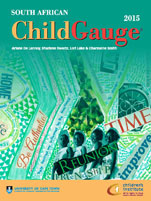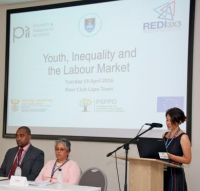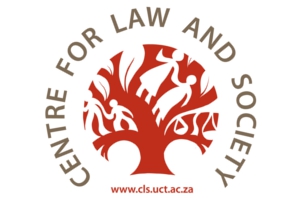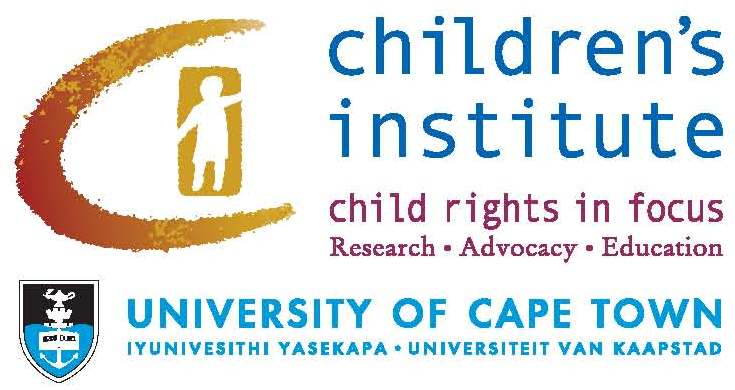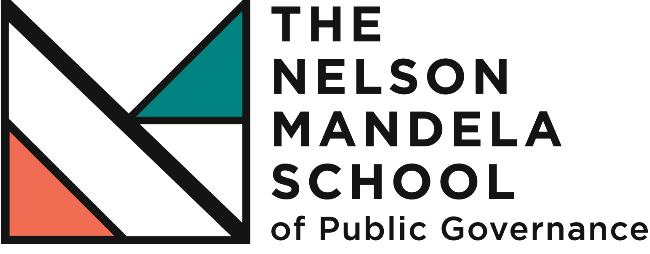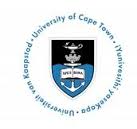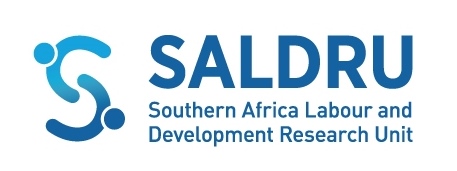UCT has a long tradition of basic and applied inter-disciplinary research projects that address and respond to specific challenges posed by poverty and inequality in South Africa. The PII aims to raise the profile of the work by research groupings housed within and across faculties, and to generate new research and cross-disciplinary collaborations on key issues around poverty and inequality.
During 2014, the PII assessed major research gaps and the areas of ‘Youth’ and ‘Social Cohesion’ were identified as underdeveloped but crucial areas; both at UCT as also in the national space. The decision was made to build these themes and the PII appointed two theme leaders, Dr Ariane De Lannoy (Youth) and Professor Justine Burns (Social Cohesion), to lead these processes. Under their guidance both themes hosted national launch workshops and developed interdisciplinary programmes for these areas.
A Focus on Youth
At the time of South Africa’s transition to democracy, hopes were high for the cohort of children born at that time. Now more than two decades into democracy, this group of children is ’coming of age’. Despite the many promises of a ‘better life for all’, racial, class and gender inequalities continue to shape these young people’s lives, dreams and opportunities. Levels of school drop-out, un(der)employment and discouraged work seekers are high, especially among previously disadvantaged groups. The situation has again given rise to the labelling of South Africa's youth as a threat to society – ‘a lost generation’ or ‘a ticking time bomb’ that needs to be ‘diffused’.
But how much do we really know about the ways in which young people in South Africa experience their lives and engage with the structural forces impacting on them? How much of that understanding is taken into account when developing policies and interventions aimed at supporting youth development? In its endeavours to engage meaningfully with the key challenges facing South Africa, the youth focus of the PII is a response to the need for evidence-based interventions aimed at empowering youth to create meaningful lives for themselves, and to break the intergenerational cycle of poverty. It calls for concerted efforts to bring together research, policy and practice in collaborative moments of knowledge exchange and creation.
To launch this area of work, the PII hosted a multi-disciplinary colloquium, entitled 'Youth in South Africa: Uncertain Transitions in a Context of Deprivation', with academics and practitioners in August 2014. Since then, various projects have since been initiated under the PII’s youth theme, all with the dual aim of:
- conducting, facilitating and collaborating on systematic, robust and multi-disciplinary studies on youth in a context of deprivation; and
- creating pathways for the translation of research into evidence-based interventions and programmes.
Youth Projects
Indicators to monitor youth well-being
A collaborative project drawing on various data sources to develop a dashboard of indicators that measure and track key dimensions of youth well-being in South Africa at local, provincial and national levels over time.
Read More
A multi-stakeholder consortium led by UCT’s PII/Southern Africa Labour and Development Research Unit (SALDRU) was established in 2027 to address the need for a comprehensive package of support for youth to help them to transition successfully to adulthood. Read More
Systematic overview of youth unemployment
Aiming for a multi-disciplinary approach, UCT’s PII and the University of Johannesburg’s Centre for Social Development in Africa (CSDA) led a dedicated team of researchers to conduct a systematic overview on the drivers of, policies and interventions related to, youth unemployment. The work culminated in a more comprehensive and integrated theory of change for youth employment, and has been translated this into a series of policy-oriented documents. Senior staff collaborated to support junior researchers or post-graduate students in producing the overview, synthesis and final reports. The project has been supported by the Research Project on Employment, Income Distribution, and Inclusive Growth (REDI3x3) and National Treasury's Jobs Fund.
Read More
Yazi - PII's youth information portal
With the aim to help young people in their quest for information on post-schooling opportunities, the PII in partnership with UCT's Children’s Institute, Ikamva Youth and the DG Murray Trust have developed 'Yazi', an easily accessible information portal that visually maps the pathways through the educational system – from grade 9 onwards – into higher education or into the world of work. It is meant to provide young people with the knowledge they need to make informed decisions about their educational or career trajectories.
Read More or Visit Yazi
2015 youth-focused Child Gauge
The South African Child Gauge® is an annual publication of the Children's Institute, University of Cape Town. It provides a snapshot of the status of children in South Africa, and in particular monitors progress towards the realisation of their rights. Each year, the publication focuses on a major challenge affecting children’s well-being as a lens to critically analyse the position of children and the potential policy responses required. The 2015 issue took a special focus on youth aged 15 – 24 years and was published in partnership with the PII.
Read More
Youth policy dialogues
Since 2014, the PII has organised - or partnered on the organisation of - a series of youth policy dialogues. These events brought together policymakers, researchers and civil society organisations to engage on what sort of policies would be most effective in steering the country towards a new and more inclusive and supportive development path for youth.
Read More
Building A Socially Cohesive Society
The PII also identified Social Cohesion as a particular area requiring greater focus and attention. As such, an interdisciplinary research project on ‘Building a Cohesive Society in South Africa’ was established.
Social cohesion is perhaps one of the most fundamental policy challenges facing South Africa today. Since the end of apartheid two decades ago, and despite numerous government interventions, South Africa is yet to emerge as a socially cohesive nation. Social cohesion influences economic and social development, and nurturing a more cohesive society is an important policy goal in itself for any country. Whilst there is a widespread agreement that social cohesion influences economic and social development, and that nurturing a more cohesive society is an important policy goal in itself, there is far less consensus about what constitutes an appropriate definition of social cohesion in a South African context, or the kinds of policies required to effectively promote a more cohesive society.
The term “Social Cohesion” has been used loosely in academic literature and political discourse, and both its meaning and its mutual dependence on economic development have not been well understood. Without definition, it becomes difficult to assess whether social cohesion has improved or worsened. Without definition and measurement, potential key determinants that are most important among a large number of factors that influence social cohesion (e.g., inequality, poverty, violence, gender conflicts, mistrust, and others) remain obscured, making it difficult to formulate policies that can be expected to materially improve social cohesion and achieve inclusive development most effectively.
This Social Cohesion theme within the broader PII aims to provide a coherent diagnosis of the state of the nation with regard to social cohesion in South Africa, and to promote innovative multidisciplinary research that provides rigorous policy advice to policy makers, planners, activists and community organisations that work to promote social cohesion. As social cohesion is fundamentally multi-faceted, we take a multidisciplinary approach consisting of history, economics, political science, sociology, law and psychology.
Through the establishment of an active network of researchers and practitioners whose work speaks to the issue of social cohesion in South Africa, the project aims to:
- offer researchers and practitioners working in different fields an opportunity to connect, debate and collaborate;
- promote and enhance the visibility of the wealth of existing work that already exists on Social Cohesion;
- take seriously the task of translating existing evidence on effective social cohesion interventions into useful policy proposals; and
- engage effectively with policy makers in achieving the National Development Plan's Vision 2030.
In 2016, a collaborative research project which addressed issues related to inequality and social cohesion in South Africa commenced. Research partners included the Agence Française de Développement (French Development Agency - AFD), the Institute of Justice and Reconciliation, and UCT’s PII. The project aimed to address the following research questions:
- What is the relationship between social cohesion an economic inequality?
- What kinds of institutional change do we need in order to promote social cohesion and reduce inequality?
- How do we bridge the growing inter-generational divide?
The research findings were released at a workshop in early in 2018 and are discussed in several publications such as working papers and policy briefs.
Cross-Faculty Research
A PII seminar series have been hosted since 2014 to showcase UCT’s PII-related research and also to provide a platform for researchers from different disciplines to engage on common topics, and provide multi-faceted and meaningful discussions and critical debate about how academics at UCT engage with issues of poverty and inequality through their research and curricula. Below are brief introductions to the university’s research units that have been actively engaged in poverty and inequality related research.
African Centre For Cities (ACC)
The African Centre for Cities at UCT conducts critical applied urban research and policy discourses to promote vibrant, democratic and sustainable urban development in the global South from an African perspective. The Centre partners closely with policy-making centres in the public sector in South Africa at all levels, and provides a home for interdisciplinary, urban-related research at UCT.
Centre For Actuarial Research (CARe)
The Centre for Actuarial Research promotes collaborative research on demography, healthcare financing, social security and HIV/AIDS modelling, drawing on the expertise of multi-disciplinary teams with interests ranging from demography, actuarial science, social security, economics, finance to public sector policy. CARe is the only unit of its kind at an African university.The overall objective of the Centre is to promote research and develop expertise in areas in which actuaries can add value.
Centre For Law And Society (CLS)
The Centre for Law and Society (previously Law, Race and Gender Research Unit) undertakes research on areas at the intersection of law, policy, and social justice, with a strong emphasis on judicial training and gender-based violence. CLS is now home to the Rural Women's Action Research Programme (RWAR), established in 2009 to assist rural women on issues relating to land, power and custom in South Africa's former homelands.
Children's Institute (CI)
The Children’s Institute is a leading voice in child policy research and advocacy in South Africa, providing rigorous evidence on the key challenges to children’s well-being to assist policy-makers and practitioners to create policies, programmes and institutions that support the best interest of children. The CI produces an annual publication on child rights, the South African Child Gauge, focusing on a topical theme each year. The Children's Institute, University of Cape Town, aims to contribute to policies, laws and interventions that promote equality and realise the rights and improve the conditions of all children in South Africa, through research, advocacy, education and technical support.The Children's Institute is headed by a director, who is supported by an executive committee, and a governing board made up of representatives from a range of policy-related disciplines across the University. The Institute's work is organised in self-generated, donor-funded research and advocacy projects. It is also increasingly accepting commissions and tenders on request. The multi-faceted nature of priori-ties for children and the multi-disciplinary approaches needed to address them require continuous collaboration between the researchers. Major projects often involve teams of staff from different research areas.
Centre For Social Science (CSSR)
The Centre for Social Science is an interdisciplinary research centre dedicated to conducting and building capacity for systematic, policy-relevant social science research in South Africa, the region and across Africa. The Centre conducts research in the broad areas of globalisation, industrialisation, democratisation, development, poverty and public health through four units – the Sustainable Societies Unit (SSU), Democracy in Africa Research Unit (DARU), AIDS and Society Research Unit (ASRU) and Policy Research on International Services and Manufacturing (PRISM).
Development Policy Research Unit (DPRU)
The Development Policy Research Unit has been actively engaged in policy-relevant socioeconomic research since 1990, establishing itself as one of South Africa’s premier research institutions in the fields of labour markets, poverty and inequality, producing academically credible and rigorous policy analysis. The DPRU is a university-recognised research unit located within the School of Economics. Through the application of economic and statistical techniques, the Unit's aim is to produce academically credible and rigorous policy analysis. Much of the DPRU’s work derives from government departments at national and provincial level, while the Unit also receives funding from international and multilateral agencies. In particular, the DPRU has completed numerous research projects at the national level for National Treasury, the Presidency, and the Departments of Labour, Social Development, Education and Trade and Industry, as well as for various departments in the Western Cape Provincial Government.
Environmental Policy Research Unit (EPRU)
The Environmental Policy Research Unit was established in 2007 to promote sustainable development and poverty reduction in southern Africa by conducting rigorous research, teaching and consultation to inform environmental policy-making on environmental issues including natural resources management. The EPRU has built extensive policy-relevant experience in research pertaining to ecosystems management, bio-diversity conservation, air quality and water quality. The centre also has previous research capacity and experience relevant to the socioeconomics of agriculture, fisheries and conservation. Specifically, this strain of research has been concerned with farmworkers’ wages, land use and rural poverty, inequality among subsistence fishermen, as well as the role of community-based wildlife conservation in poverty mitigation. EPRU has successfully worked with a number of local and national stakeholders on medium-size projects, such as the South African National Parks in the wildlife sector, the Department of Water Affairs and Forestry in the water sector, the Department of Environmental Affairs and Tourism on marine and coastal management, and the City of Cape Town on air quality management and energy savings. EPRU strives to bid for larger research projects that will enhance collaboration among EPRU research fellows, with other researchers and, importantly, with key stakeholders.
Energy Research Centre (ERC)
[The ERC was dissolved in 2019 and its work absorbed into those of the African Climate and Development Initiative.] The Energy Research Centre was a multi-disciplinary centre that conducts research and education on technology, policy and sustainable development, focused on energy and related issues including efficiency, environment and climate change, energy poverty and development and energy systems analysis and planning. Specific objectives of the ERC included:
- To undertake independent and objective research of both national and global interest in order to deepen knowledge and understanding of energy and development needs, problems, challenges and innovative solutions.
- To undertake research on linkages between energy and other themes, including economic and social development and impact, environment and climate change.
- To educate and train researchers through postgraduate degrees and short course programmes.
- To organise specialised short courses on energy, economic development and climate change for policy makers and other executives.
- To build the Centre’s employees’ capacity on energy and related development issues through academic and specialised courses.
- To contribute to sustainable development at national, regional and global level,through social equity, economic efficiency, technology and policy analysis/research.
- To promote and disseminate research findings to the community using peer-reviewed and other publications.
- To produce journals, newsletters and other materials of interest to communities in South Africa and abroad.
- To organise and attend meetings, seminars, workshops and conferences in order to disseminate and share ideas and information.
- To build strategic alliances and partnerships with other organisations both at local and international level in order to enhance internal capability to achieve objectives.
The Nelson Mandela School Of Public Governance (NMSPG)
The Nelson Mandela School of Public Governance (formerly the Graduate School of Development Policy and Practice) was established at UCT in 2011 to strengthen strategic leadership and accountability in Africa’s public sector, critical in ensuring development goals and economic growth. The School brings together policymakers, experts and other leaders in society to engage on important policy issues which impact on the twin challenges of poverty and inequality. Its high-powered International Advisory Board mirrors this focus – comprising senior academics from top international universities, including Stanford, Princeton and Oxford, and key leaders in African politics. In 2014, the School achieved a key milestone with the launch of its innovative multi-disciplinary MPhil programme in Development Policy and Practice for the first group of students drawn from South Africa and elsewhere in Africa.
Health Economics Unit (HEU)
The Health Economics Unit in the School of Public Health and Family Medicine conducts policy-relevant research on health economics and health systems to improve the performance of health systems in sub-Saharan Africa. Research to gather scientific evidence on the social determinants of health, in keeping with global trends, is intended to inform domestic policy actions to improve the health status of the population.
Land Reform And Democracy
Land Reform and Democracy is a vibrant research programme based in the Sociology Department that explores key questions around the land, democracy, equity and agency and gathers evidence on this critical and deeply political issue in the country. In South Africa, issues of land and governance are at the heart of the political and development debate and need urgent attention. The Land Reform and Democracy in SA: State and Civil Society Dynamics Research Chair puts the spotlight on the land question and seeks to deepen debate around democracy, equity and agency. Professor Lungisile Ntsebeza, who holds this Research Chair has conducted extensive research on the land question in South Africa, specifically on land rights, democratisation, rural local government, traditional authorities, and land and agrarian movements.
Southern Africa Labour And Development Research Unit (SALDRU)
SALDRU is based at the School of Economics and conducts policy-relevant research in applied empirical microeconomics with an emphasis on labour markets, human capital, poverty, inequality and social policy. Founded in 1975, SALDRU has produced a major body of research contributing to policy to address poverty in South Africa. SALDRU is home to J-Pal Africa, and has also been responsible for implementing the National Income Dynamics Study (NIDS), the first national household panel study in South Africa. NIDS is part of an intensive multi-million rand effort on the part of the government to track and understand the shifting face of poverty. In 2018, the African Centre of Excellence for Inequality Research (ACEIR) was established at UCT under SALDRU's leadership, and researchers and PhD students of SALDRU comprise the South Africa node of ACEIR.
Abdul Latif Jameel Poverty Action Lab Africa (JPAL AFRICA)
The Abdul Latif Jameel Poverty Action Lab (J-PAL) was established in 2003 as a research centre at the Economics Department at the Massachusetts Institute of Technology. Since then, it has grown into a global network of researchers who use randomised evaluations to answer critical policy questions in the fight against poverty. J-PAL’s mission is to reduce poverty by ensuring that policy is informed by scientific evidence. J-PAL Africa, based at the University of Cape Town, leads J-PAL’s work in sub-Saharan Africa. J-PAL Africa conducts randomised evaluations, builds partnerships for evidence-informed policymaking, and helps partners scale up effective programmes. Their research team evaluates the impact of social programmes and policies in South Africa, covering a wide range of sectors including labor markets, urban services, and political participation. The policy team works with organisations and governments across Africa to build, pilot, and scale The training team builds researcher capacity to conduct randomised evaluations and policymakers' capacity to use evidence from randomised evaluations effectively.



